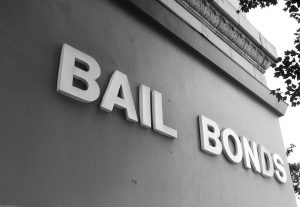
It’s a call nobody wants to get—a loved one has been arrested and charged with a crime. Naturally, you’re going to want them released on bail as soon as possible, so they can resume family life, meet work obligations, and assist in their own defense. But for defendants who lack the resources to post either a cash or collateral bond, the alternative may be a long jail stay. Given that some defendants can spend more than a year in jail until their trial date, this is a less-than-appealing option that can result in estrangement from family and lost employment.
How No-Collateral Bonds Work
Fortunately for some defendants, there may be an alternative. It’s called a “no-collateral” or “signature” bond. Here’s how it works.
- A judge or magistrate must set bail for the defendant.
- The defendant must demonstrate an inability to pay their portion of the bond (a bail bond agent typically assumes 85%-90% of the bond responsibility).
- The defendant must apply for a no-collateral bond (be ready for some paperwork).
- The defendant must have a signatory—a friend or family member who is willing to sign a promise that the defendant will make all court-scheduled appearances.
- The judge or magistrate must approve the bond arrangement.
Eligibility Requirements and Disqualifiers
So how do you know whether a defendant is eligible for a no-collateral bond? The application process is rigorous and in some ways resembles a credit application. The court must consider many factors of a defendant’s life, criminal past, current charges, and financial history when deciding whether to approve a no-collateral bond application.
Nature of the Current Charges
The chances of obtaining a no-collateral bond are greater for defendants whose current charges are minimal, non-violent crimes. The more severe the offense, the less likely that a no-collateral bond will be issued.
Criminal History
The court also considers the defendant’s past criminal history (if any) when deciding whether to issue a no-collateral bond. Defendants with short rap sheets and no violent crimes in their history are more likely to be approved.
Prior History with Bail
If a defendant has previously been arrested and has put up cash or collateral bond, the court will determine whether all conditions of that bond were met. Defendants with a history of bail skips will not be eligible for a no-collateral bond.
Residency History
Often the court will look at a defendant’s history within their community. Someone who has remained at the same residence for a long period is often deemed a lower flight risk and a better candidate for a no-collateral bond.
Credit History
A defendant’s financial history may also come under scrutiny, as this gives the court clues to the defendant’s character and history of meeting financial obligations.
Once a no-collateral bond is approved, the defendant remains under the same restrictions as a defendant released on cash or collateral bond. That is, they must meet all requirements set by the court and make all court-scheduled appearances. Violation of these terms will likely result in a revocation of bond, re-arrest, and incarceration until trial.
At Bond James Bond, we understand how important it is for defendants to maintain work and family life while awaiting trial. That’s why we work with each client to help secure their release and meet their obligations to the court. If you or a loved one has been charged with a crime, give us a call and discover what Bond James Bond can do for you.
______________________________________________________________
Bond, James Bond, Inc. can handle any size or type of Georgia bail bonds in Barrow County, Bartow County, Cherokee County, Clarke County, Cobb County, Floyd County, Gordon County, Gwinnett County, Paulding County and Polk County. We are always open - 24 hours a day, 7 days a week including holidays. We have 11 locations which are conveniently located to serve you better. Visit us at www.bondjamesbondinc.com, or call Bond, James Bond, Inc. at (770) 382-9111.

